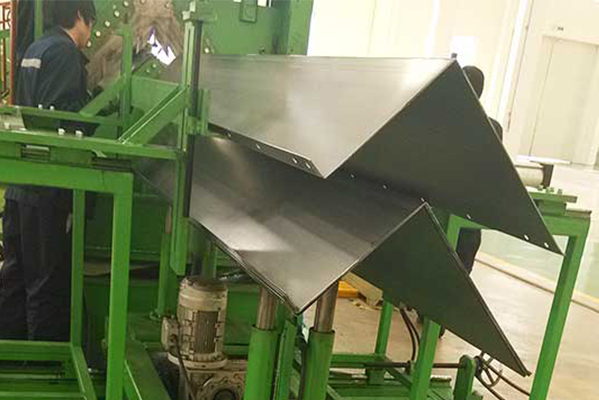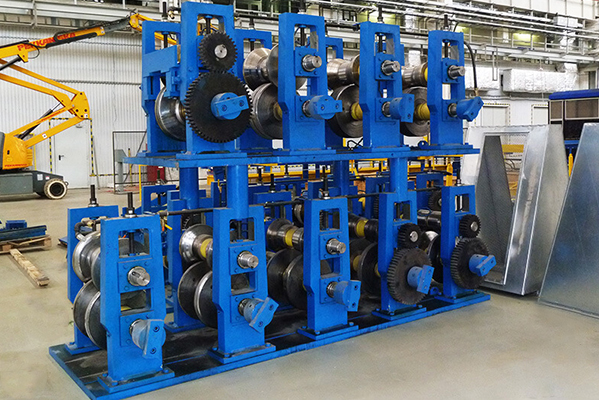Navigation Menu
Contact Us
- Email:
- info@wxavatar.com
- Address:
- Yurong Village, Yuqi Street, Huishan District, Wuxi, China.
Release Date:Apr 17, 2025 Visit:77 Source:Roll Forming Machine Factory
Steel rolls serve as essential components in various metalworking processes, particularly in rolling mills where they perform critical shaping and forming functions. These precision-engineered cylinders play a fundamental role in transforming raw metal materials into usable products across multiple industries. This article examines the primary purposes of steel rolls and their significance in manufacturing operations.
Primary Functions of Steel Rolls
1. Material Shaping and Forming
Steel rolls are principally designed to reshape metal stock through mechanical deformation. In rolling mills, pairs of counter-rotating rolls apply compressive forces to:
Reduce material thickness in flat rolling operations
Create specific cross-sectional profiles in shape rolling
Form continuous lengths of uniform product dimensions

2. Surface Finishing Control
The condition and quality of roll surfaces directly influence the final product's appearance and characteristics. Steel rolls:
Impart desired surface textures to processed materials
Maintain consistent finish quality throughout production runs
Can be textured or polished to achieve specific surface requirements
3. Dimensional Accuracy Maintenance
Precision-engineered steel rolls ensure manufactured products meet strict dimensional tolerances by:
Providing uniform compression across the material width
Maintaining consistent gap settings during operation
Minimizing dimensional variations in continuous production
Types of Steel Rolls and Their Specific Purposes
1. Work Rolls
Directly contact the material being processed
Perform the primary deformation work
Available in various hardness grades for different applications
2. Backup Rolls
Support work rolls in cluster mill configurations
Prevent excessive deflection of work rolls
Enable processing of wider materials
3. Intermediate Rolls
Used in multi-roll mill setups
Provide additional support in precision rolling applications
Help achieve superior flatness control
Industrial Applications of Steel Rolls
Metal Production Facilities
Hot and cold rolling mills for steel, aluminum, and other metals
Continuous casting operations
Foil and thin-gauge material production
Manufacturing Sector
Production of automotive body panels
Manufacturing of construction materials
Fabrication of industrial components
Operational Considerations
Material Selection Factors
Roll manufacturers consider various parameters when producing steel rolls:
Required hardness and wear resistance
Thermal stability under operating conditions
Resistance to mechanical fatigue
Compatibility with processed materials
Maintenance Requirements
Proper roll maintenance ensures:
Consistent product quality
Extended service life
Reduced production downtime
Optimal operational efficiency

Conclusion
Steel rolls serve as indispensable tools in metal forming and processing industries, fulfilling critical functions in material shaping, dimensional control, and surface finishing. Their design and implementation directly impact production efficiency and product quality across numerous manufacturing sectors. Understanding the purpose and capabilities of steel rolls helps optimize their application in various industrial processes, contributing to reliable and consistent manufacturing outcomes.